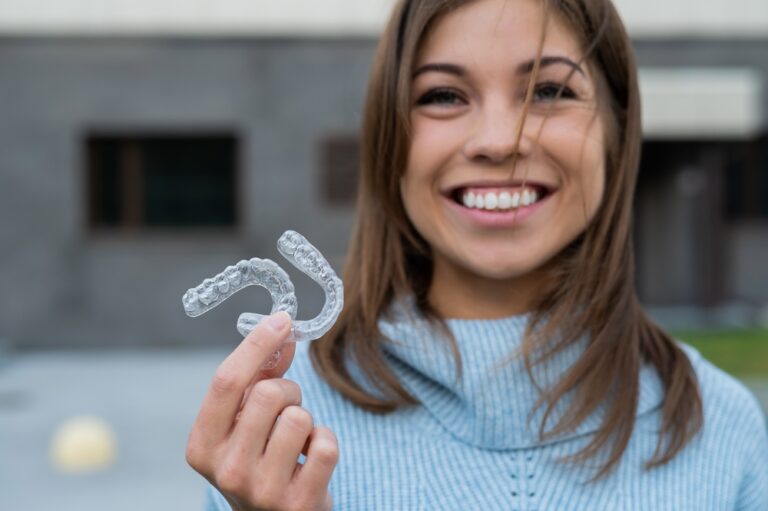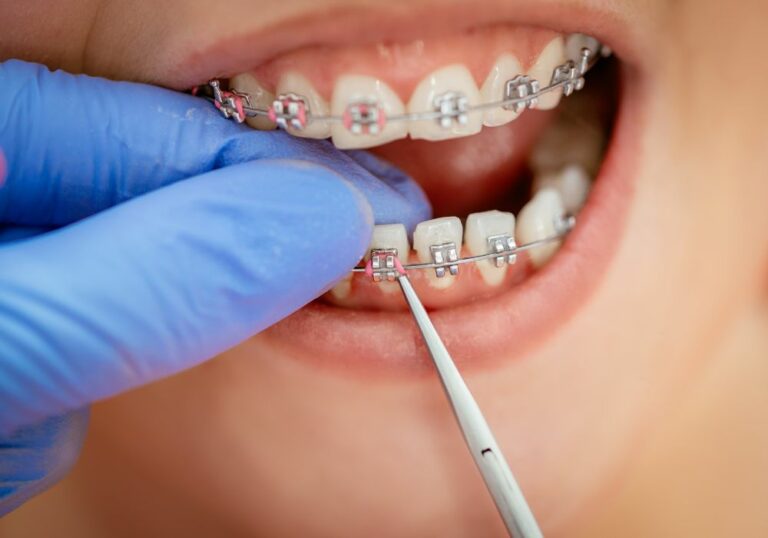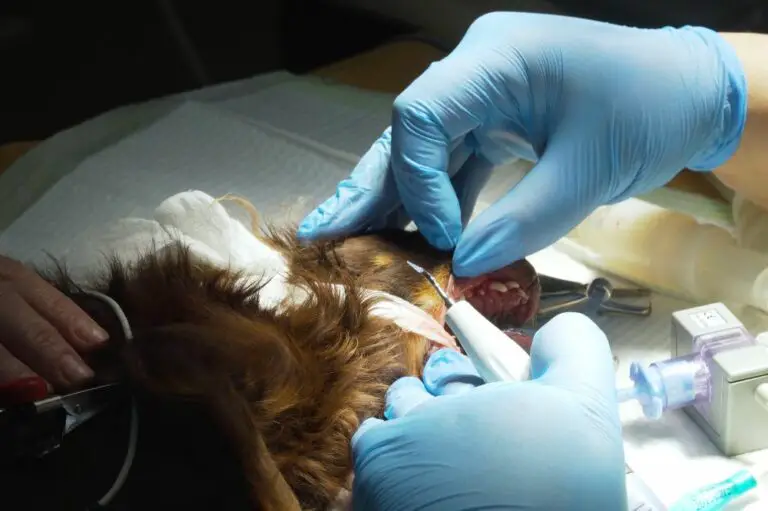After having your wisdom teeth removed, it’s normal to be cautious about what you eat. You may be wondering when you can start eating normal food again. The answer to this question depends on how well you follow your dentist’s post-operative instructions and how well your mouth is healing.
Typically, it’s recommended to wait at least seven days before introducing solid foods back into your diet. During this time, you should stick to soft, cold, and liquid foods to help your mouth heal properly. Eating foods that are too hot, too cold, or too hard can cause irritation or even lead to infection. It’s important to be patient and follow your dentist’s instructions to ensure a speedy and successful recovery.
Understanding Wisdom Teeth Removal
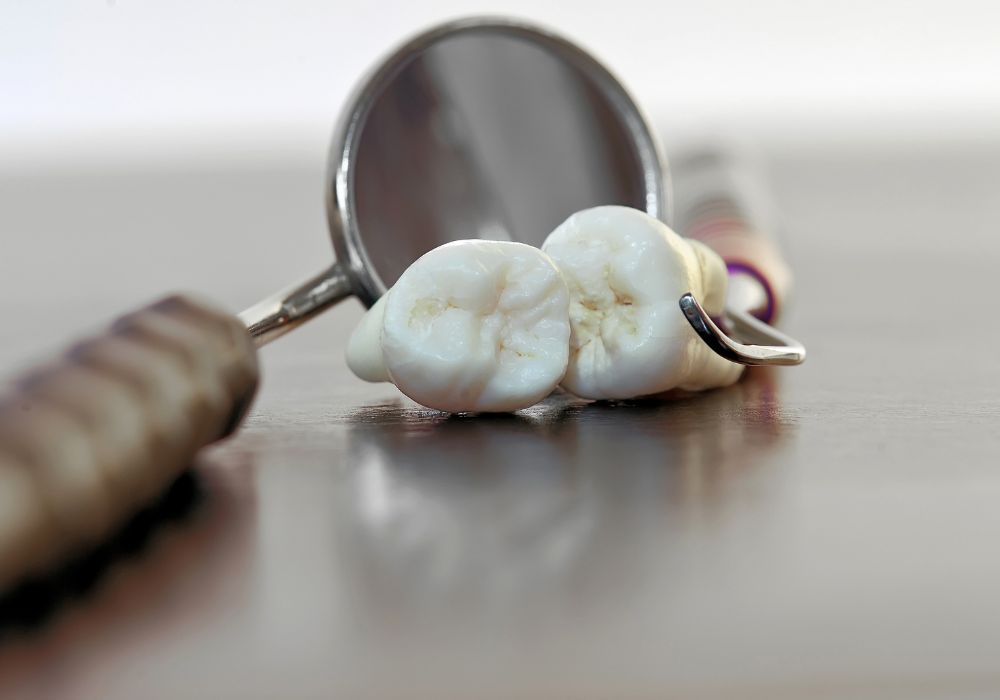
If you’re about to have your wisdom teeth removed, it’s important to understand what the procedure entails. Wisdom teeth are the four permanent adult teeth located at the back corners of your mouth on the top and bottom. If they don’t have enough room to grow, they can cause pain, infection, or other dental problems.
During the wisdom teeth removal procedure, your dentist or oral surgeon will numb the area around the teeth with a local anesthetic. They may also offer sedation to make you more comfortable during the procedure. Then they will make incisions in the gums to access the teeth and remove them.
After the procedure, you’ll need to take some time to recover. It’s normal to experience some pain, swelling, and bleeding for a few days after the procedure. Your dentist or oral surgeon will provide you with detailed instructions on how to care for your mouth and what to expect during the recovery period.
It’s important to follow these instructions carefully to ensure that your mouth heals properly. You’ll need to avoid certain foods and activities for a period of time after the procedure to give your mouth time to heal.
In the next section, we’ll discuss what you can expect in terms of eating after wisdom teeth removal.
Immediate Aftercare: First 24 Hours
The first 24 hours after wisdom teeth removal are critical for your recovery. Here are some tips to help you care for yourself during this period:
1. Bite on a Gauze Pad
After the surgery, you will be asked to bite down on a gauze pad to control bleeding. Keep the gauze pad in place for at least 30 minutes, and then replace it with a new one if it gets soaked with blood. Repeat this process until the bleeding stops.
2. Apply Ice Packs
Swelling is normal after wisdom teeth removal. Applying ice packs to your cheeks can help reduce swelling and discomfort. Apply the ice packs for 20 minutes at a time, with 20-minute breaks in between.
3. Rest and Relax
Rest and relaxation are essential during the first 24 hours after surgery. Avoid strenuous activities, and don’t drive or operate heavy machinery while you’re still under the influence of anesthesia.
4. Drink Plenty of Fluids
Drinking plenty of fluids is important after wisdom teeth removal. Stick to water, juice, and other non-carbonated, non-alcoholic beverages. Avoid using a straw, as the sucking motion can dislodge the blood clot and delay healing.
5. Eat Soft Foods
For the first 24 hours after surgery, stick to soft foods like soup, yogurt, and mashed potatoes. Avoid hot, spicy, or acidic foods, as they can irritate the surgical site. You can gradually add solid foods to your diet as you feel comfortable, but avoid crunchy or chewy foods until your mouth has fully healed.
By following these tips, you can help ensure a smooth recovery after wisdom teeth removal. If you experience severe pain, bleeding, or other complications, contact your dentist or oral surgeon right away.
Gradual Diet Transition: Day 2 to Day 7

After the first 24 to 48 hours of your wisdom teeth removal surgery, you can start to transition from a liquid diet to a soft food diet. Gradually introducing solid foods back into your diet is important to avoid irritating the extraction site and causing complications.
Soft Foods
During this transition period, you should stick to soft foods that are easy to chew and swallow. Here are some examples of soft foods that you can include in your diet:
- Blended soups like tomato soup and pumpkin soup
- Mashed potatoes or sweet potatoes
- Scrambled eggs or omelets
- Smoothies or milkshakes
- Yogurt or cottage cheese
Remember to avoid hot, spicy, or acidic foods that can cause irritation or discomfort to the extraction site.
Semi-Solid Foods
As you progress in your recovery, you can gradually start to include semi-solid foods in your diet. These foods require more chewing but are still soft enough to avoid causing damage to the extraction site. Here are some examples of semi-solid foods that you can include in your diet:
- Cooked vegetables like carrots, green beans, and squash
- Soft fruits like bananas, peaches, and mangoes
- Soft pasta or noodles
- Cooked fish or chicken
It is important to continue avoiding hard, crunchy, or chewy foods that can cause damage to the extraction site. Gradually introducing solid foods back into your diet will help you avoid complications and promote a smooth recovery.
Resuming Normal Diet: After One Week
Congratulations! You have made it through the first week after your wisdom teeth removal. At this point, you can start to gradually resume your normal diet. However, it is essential to keep in mind that your mouth is still healing, and you should continue to be cautious about what you eat.
Here are some tips to help you safely transition back to your regular diet:
- Start by incorporating soft, easy-to-chew foods like scrambled eggs, mashed potatoes, and cooked vegetables.
- Avoid crunchy or sticky foods for a little while longer. These can still be challenging to chew and may cause discomfort or irritation.
- If you experience any pain or discomfort while eating, take a break and try again later. Listen to your body and take it slow.
- Continue to drink plenty of fluids, especially water, to keep your mouth hydrated and promote healing.
- Avoid alcohol and smoking during the healing process, as they can slow down the healing process and increase the risk of infection.
Remember that every person’s recovery process is different. It is essential to follow your dentist’s or oral surgeon’s instructions and recommendations closely. If you have any concerns or questions about your recovery, don’t hesitate to reach out to your dental professional for guidance.
In summary, after one week, you can start to gradually resume your normal diet, but it is crucial to continue to be cautious and listen to your body. Stick to soft, easy-to-chew foods and avoid crunchy or sticky foods for a little while longer. Stay hydrated, avoid alcohol and smoking, and follow your dentist’s or oral surgeon’s instructions closely.
Potential Complications to Watch For
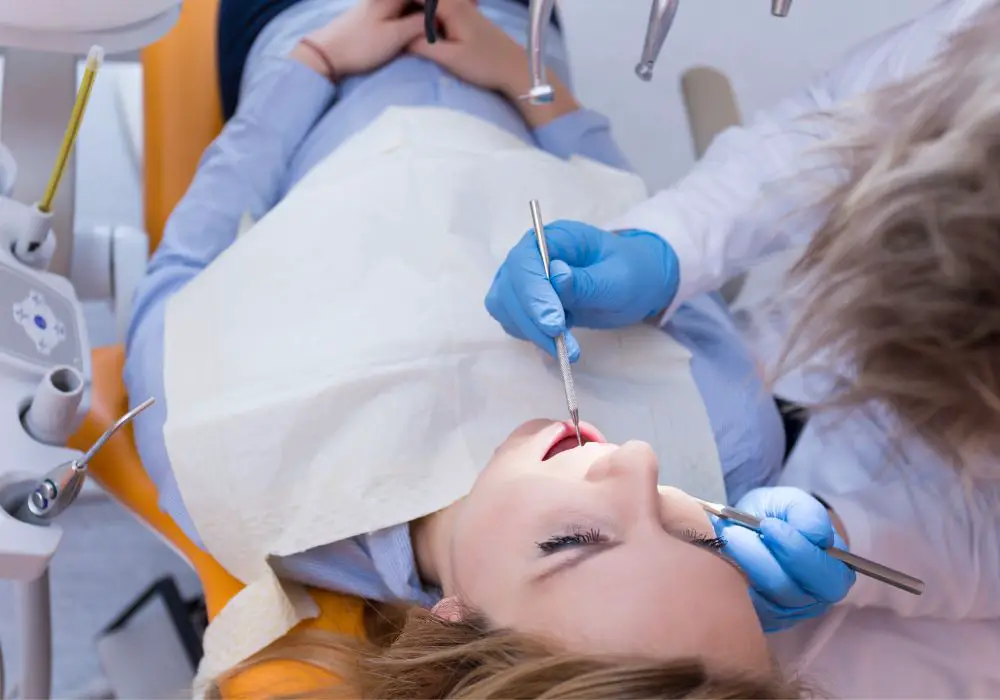
After wisdom teeth removal, it’s important to be aware of potential complications that may arise during the healing process. While most people recover without any issues, it’s always better to be prepared and know what to watch out for.
Dry Socket
One of the most common complications after wisdom teeth removal is dry socket. This occurs when the blood clot that forms in the socket where the tooth was removed becomes dislodged or dissolves before the wound has a chance to heal. Dry socket can be extremely painful and may require a visit to your dentist or oral surgeon for treatment.
To avoid dry socket, it’s important to follow your dentist’s post-operative instructions carefully. This may include avoiding smoking or using straws, rinsing your mouth gently with salt water, and avoiding hard or crunchy foods for a few days after surgery.
Infection
Infection is another possible complication after wisdom teeth removal. Signs of infection may include fever, swelling, and increased pain or tenderness at the surgical site. If you suspect you may have an infection, it’s important to contact your dentist or oral surgeon right away.
To reduce your risk of infection, be sure to keep the surgical site clean and follow your dentist’s instructions for oral hygiene. This may include gently brushing your teeth and rinsing your mouth with salt water or an antimicrobial mouthwash.
Prolonged Pain or Swelling
While some pain and swelling is normal after wisdom teeth removal, if you experience prolonged or severe pain or swelling, it may be a sign of a complication. This could be due to an infection, dry socket, or another issue.
If you’re experiencing prolonged pain or swelling, be sure to contact your dentist or oral surgeon for an evaluation. They may recommend over-the-counter pain relievers or prescribe medication to help manage your symptoms.
Tips for Speedy Recovery
After wisdom teeth removal, it’s important to take good care of yourself to promote a speedy recovery. Here are some tips to help you heal faster:
1. Follow Your Dentist’s Instructions
Your dentist will provide you with detailed instructions on how to care for your mouth after wisdom teeth removal. It’s important to follow these instructions carefully to avoid complications and promote healing.
2. Rest and Relax
Resting and relaxing is essential for a speedy recovery. Avoid any strenuous activities that could increase your blood pressure and cause bleeding. Take time off work or school to give yourself time to heal.
3. Use Ice Packs
Ice packs can help reduce swelling and discomfort after wisdom teeth removal. Apply an ice pack to your cheek for 15-20 minutes at a time, with a break of at least 10 minutes in between. Repeat as needed.
4. Eat Soft Foods
For the first few days after wisdom teeth removal, stick to soft foods like soup, yogurt, and mashed potatoes. Avoid hard, crunchy, or chewy foods that could irritate the extraction site.
5. Stay Hydrated
Drinking plenty of fluids is important after wisdom teeth removal to prevent dehydration and promote healing. Stick to water, juice, and other non-acidic drinks.
6. Avoid Smoking and Alcohol
Smoking and alcohol can slow down the healing process and increase the risk of complications after wisdom teeth removal. Avoid smoking and drinking alcohol for at least 24 hours after the procedure.
By following these tips, you can help ensure a speedy and successful recovery after wisdom teeth removal.
Frequently Asked Questions
What are some soft foods I can eat after getting my wisdom teeth removed?
After getting your wisdom teeth removed, it is important to stick to a soft food diet for the first few days. Some good options include mashed potatoes, smoothies, yogurt, and soup. You should avoid foods that are hard to chew or require a lot of effort to eat.
When can I start eating rice after getting my wisdom teeth removed?
You can start eating rice a few days after getting your wisdom teeth removed, but make sure it is well-cooked and soft. Avoid adding any spicy or crunchy toppings that could irritate the extraction site.
What are some good foods to eat on the second day after wisdom teeth removal?
On the second day after wisdom teeth removal, you can start introducing slightly more solid foods into your diet. Good options include scrambled eggs, oatmeal, and soft fruits like bananas and avocados. Remember to chew slowly and avoid any foods that could get stuck in the extraction site.
When is it safe to eat chicken after getting my wisdom teeth removed?
You should wait at least a week before eating chicken after getting your wisdom teeth removed. When you do start eating meat again, make sure it is cooked thoroughly and cut into small, bite-sized pieces.
When can I start eating solid foods again after getting my wisdom teeth removed, according to Reddit?
According to Reddit users who have had their wisdom teeth removed, it is safe to start eating solid foods again after about a week. However, you should still be cautious and stick to softer foods if you experience any discomfort or pain while eating.
What are some foods I can eat on the fifth day after getting my wisdom teeth removed?
By the fifth day after getting your wisdom teeth removed, you can start introducing more solid foods into your diet. Good options include pasta, soft bread, and cooked vegetables. However, make sure to continue avoiding any hard or crunchy foods that could damage the extraction site.




